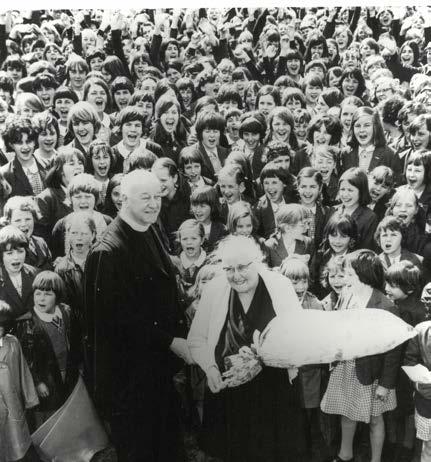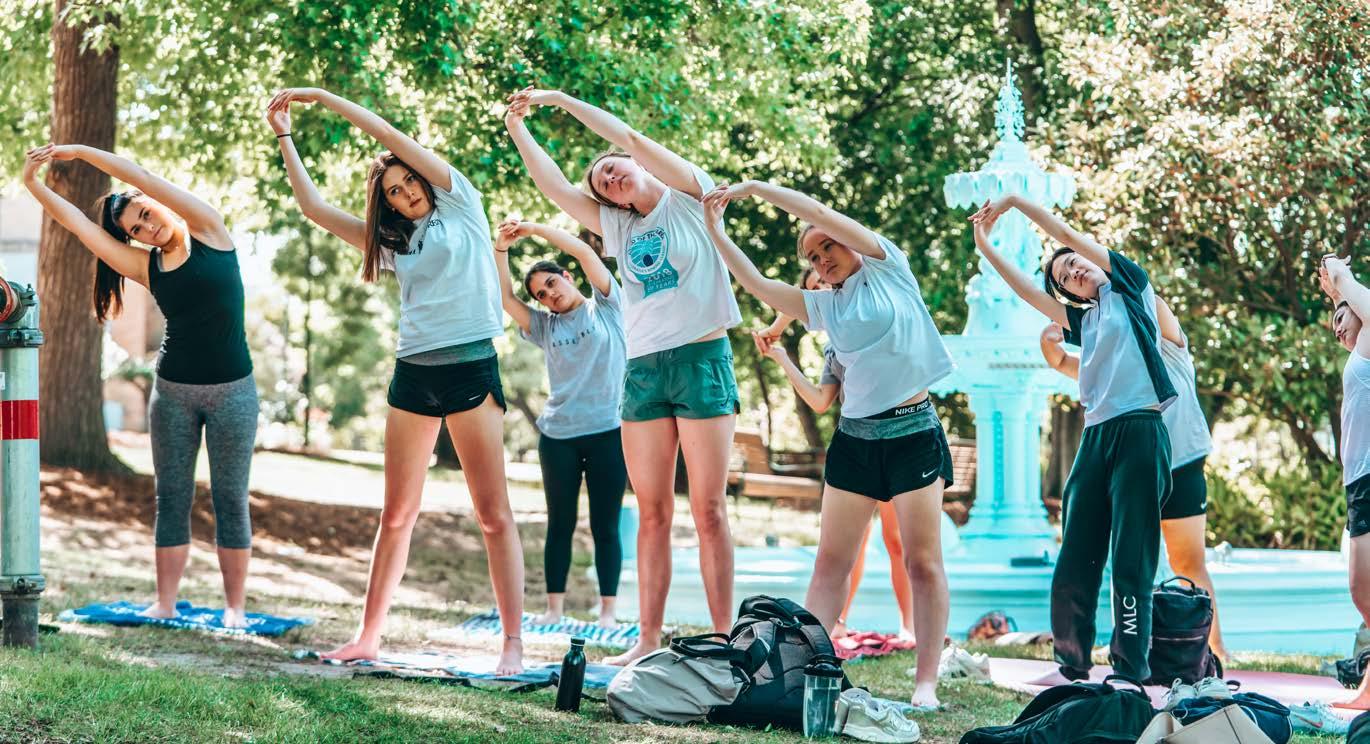
2 minute read
From the Archives
A Junior School class outside in the current Front Gardens, 1920.
LOOKING BACK: OUR APPROACH TO WELLBEING historyTHROUGH

Top: Dr Olive Wood with Dr Harold Wood, Principal of MLC, on his day of retirement, surrounded by students. Bottom: Students in an outdoor exercise class, 1924. MLC was founded in 1882 to be a “modern school of the first order”. This included adopting a contemporary approach to health, as well as a curriculum and programs that put student wellbeing at the forefront of College operations.

MLC’s commitment to providing allround care for its students was reflected in its earliest decisions, including the purchase a block of land known as Kelly’s Paddock. According to MLC’s 1896 prospectus: “The College is situated in Kew, the suburb declared by the Registrar-General to be ‘the healthiest spot in Australia’...the laws of healthy life are studied and observed, and it is a rule almost without exception that a girl who comes to reside at the College gains immediately in bloom of cheek, and brightness of eye, and general vigour of body.”
While the focus was on physical wellness, the 1896 Prospectus also notes MLC’s intention to educate and train “the character” and the intellect.
In the 1930s, the wife of Principal, Dr Harold Wood, happened to be a medical doctor. Dr Olive Wood was an exemplary role model in regard to the potential of educated women. She also undertook close supervision of students’ health, particularly that of the boarders. While the focus remained on having a healthy mind and healthy body, perceptions on how to achieve this had shifted considerably. The College was now focused on helping students recognise their potential. There was a sense that students could be guided to find their purpose or calling in life and that through this, they would find fulfilment.
MLC was one of the first schools to include mental health and wellbeing within its curriculum. In 1989, the school was busy preparing staff and students for the introduction of Psychology as a subject. It was hoped the subject would help encourage students to be “more informed and help them to make appropriate decisions in their own lives...[and] to empower students to understand themselves and others in society.” (The Star, 1989 Vol 3, No 2).
From the 1990s, MLC began implementing programs and groups outside of the classroom, to ensure that students were set up for success. In recent times, this can be seen through the introduction of wellbeing-focused programs like the well4twelve program (introduced 2007) and the Online Safety and Ethics Program (introduced in 2008). To prove its commitment to student wellbeing, the College also created the Director of Wellbeing position in 2010. While these are just a handful of examples, they showcase MLC’s recognition and understanding that students are better able to learn when they are healthy, safe and happy.
The Archives hopes to continue documenting the living history of the College, especially of our online wellbeing programs run this year. We hope that our future students, parents and community can look back on this period and understand not only the challenges, but also the innovative ways MLC prioritised student wellbeing during the pandemic.










